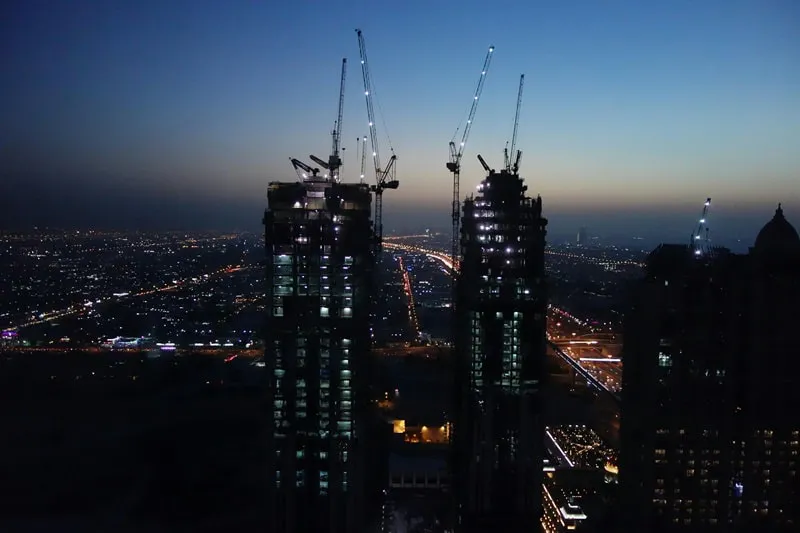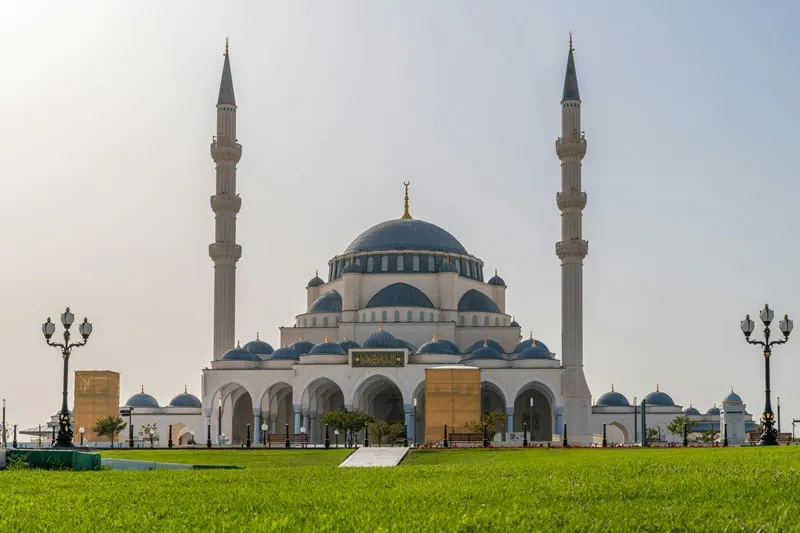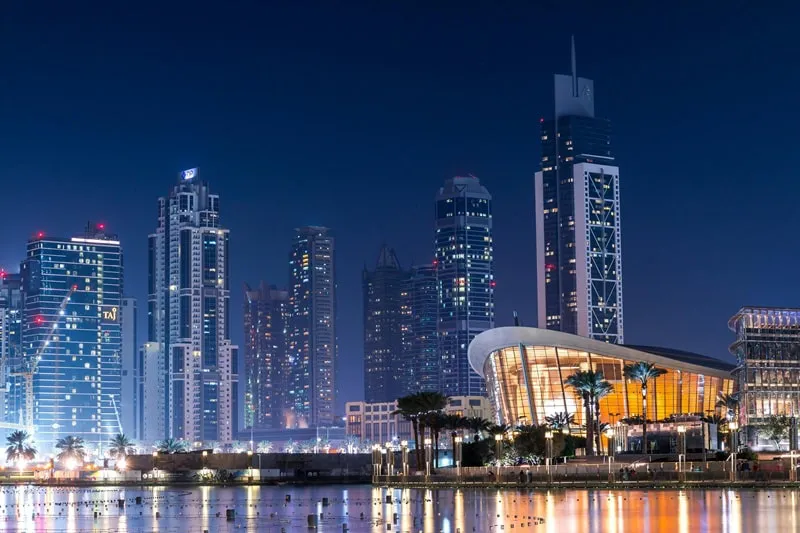

30.07.2025
781
What is this about? The Emirate of Sharjah is a rapidly developing economic zone of the UAE. Unlike Dubai, property prices here are significantly lower, and the favourable investment climate attracts numerous foreign companies. Sharjah is also an excellent choice for permanent residence.
Is it worth investing in? It certainly is, especially in light of the news that foreign citizens are now permitted long-term leasing and full property ownership in this emirate. The climate, infrastructure, and active development of the region all indicate that this is a place worth coming to for both business and life.
Sharjah, one of the seven emirates comprising the United Arab Emirates, has earned the status of the cultural capital of this country. Whilst maintaining more conservative principles compared to other emirates, Sharjah still offers extensive and diverse opportunities for both its residents and visitors.
The emirate is renowned for its theatres, galleries and museums. One can delve into history and culture by visiting places such as the Mleiha Archaeological Centre, which houses exhibits dating back to 2300 BC.
Sharjah stands out as an important seaport, which means the cost of goods here is lower than in Dubai and Abu Dhabi. This makes it particularly attractive for expatriates, as living here can be more affordable.

Previously, foreign citizens, except for Gulf countries' residents, could only use property in Sharjah under the leasehold system, meaning long-term rental rights. However, now, alongside Dubai and Abu Dhabi, Sharjah offers the possibility of full property ownership — freehold. Thanks to this change, the emirate's property market is experiencing a surge in activity: new construction projects are being launched, developers are being attracted, and foreign investors are actively beginning to invest in square metres.
The current situation in the property market resembles Dubai ten to fifteen years ago — the beginning of a rapid ascent:
People familiar with investments will agree: maximum return growth is often observed at the beginning of a region's development, where prospects seem limitless.
The Emirate of Sharjah is not a “desert”; it has infrastructure, beaches, hotels and roads, and Dubai is within walking distance.
The emirate is known for its strict attitude towards alcohol: it can only be purchased in duty-free shops. Sharjah offers comfortable conditions, spiritual enrichment and career opportunities for those who are ready to lead a healthy lifestyle, abstain from alcohol and cigarettes, and adhere to a conservative dress code.
Sharjah, the third-largest emirate in the UAE, actively attracts tourists with its peaceful and safe way of life. In this conservative yet developing place, the level of comfort matches Dubai, although there may be fewer entertainment options. More and more investors prefer Sharjah for financial investments due to more affordable living costs, government business support, and attractive prospects in the real estate sector.
The Emirate of Sharjah, which has become an attractive corner for emigrants, is famous for its talented and multicultural residents. The emirate attracts people due to significant investments in education, investing more than $1.5 billion annually, which is one of the highest rates compared to other countries. About 47,000 people study in the student campus of this region. Most of them plan to stay in this region after graduation.
Sharjah's authorities are actively working to transform the emirate into one of the most advantageous places for business activities in the Gulf region. Thanks to various free economic zones and the efficient work of the Sharjah Investors Services Centre (SAEED), launching one's own enterprise here occurs without particular difficulties.
The Emirate of Sharjah attracts entrepreneurs and startups through the Sharjah Economic Development Department (SEDD), which handles licensing and registration of companies on the mainland. Procedures are maximally simplified, contributing to ease of doing business. Significant support is also provided by the UAE Commercial Companies Law (CCL), which has undergone changes allowing foreign investors to own 100% of their business in Sharjah. Such companies gain the ability to operate throughout the UAE.
Several free economic zones (FEZs) operate in the Emirate of Sharjah, located near major transport hubs or directly in their areas. The emirate is noted for its low level of bureaucracy, making its FEZs attractive for business operations. Despite the UAE introducing a 9% corporate tax on annual income exceeding 375,000 AED (approximately 102,000 USD) from June 2023, free zones maintain a zero tax rate.
The Emirate of Sharjah occupies an advantageous location — between Dubai and the northern regions of the country. The emirate is unique in that it shares borders with six other emirates. Sharjah provides convenient access by air, sea, and land not only to UAE administrative centres but also to Gulf countries and other states beyond this region. It is precisely due to such accessibility that the emirate's manufacturing sector makes a significant contribution to the economy, comprising 17% of its GDP.

The region's leading airline, Air Arabia, is based at the local airport, which connects the UAE with Europe, Africa, and Asia. The Emirate of Sharjah attracts with its proximity to Dubai International Airport, located just 28 km away.
Sharjah has three seaports and is the only emirate with access to both the Persian Gulf and the Indian Ocean thanks to its enclave in Al Fujairah.
The Emirate of Sharjah is famous for its number of startups and small and medium-sized enterprises — there are more than 60,000 of them here. The emirate has become an innovation centre thanks to the Sharjah Entrepreneurship Centre, which offers multi-level support. This includes: business incubators, acceleration programmes, and the organisation of the Entrepreneurship Festival, which brings together promising innovators from around the world each year.
Various projects take place in the University City and Sharjah Research Technology and Innovation Park (Sharjah RTI Park), combining efforts of industry, government structures, academic institutions, and research centres. Sharjah actively develops projects in collaboration with leading technology companies such as Nokia, IBM, and Dell. Sharjah's digitalisation and electronic transformation, as well as commitment to sustainable development, are at the centre of this region's innovation culture.
There are excellent opportunities for real estate investment here. The Emirate of Sharjah offers high-quality housing at prices significantly lower than in neighbouring cities, Dubai or Abu Dhabi. In Sharjah, the average property price is $208,000, but there are cheaper options available — down to $100,000.
At the end of 2022, freehold zones appeared in the emirate for the first time. During the first three months after this innovation, local property prices jumped by 15–20%, and interest in both under-construction and completed properties increased by 30%. Experts are confident that this step will enhance Sharjah's attractiveness. They note that the real estate market in the emirate is more stable and less subject to price fluctuations compared to Dubai, which is important to consider.
Sharjah is becoming increasingly attractive to investors, and its popularity is growing rapidly. When considering buying property in Dubai, don't forget about the opportunities in Sharjah. Housing here is offered at more affordable prices and has excellent prospects for quick returns on investment.
The Sharjah Department of Economic Development is the main government body establishing the basic principles for company formation in this region. Companies can be structured in the following ways:

Business registration in Sharjah depends on the type of company, each having its own characteristics regarding ownership forms, registration process, licensing, and required documents:
Regardless of the type of company you choose, you will need to collect an almost identical package of documents with minimal differences.
Documents for the Sharjah Department of Economic Development:
Each commercial licence has a validity period of one year, after which it needs to be renewed.
Registering a trademark for your company is extremely important as it must reflect your field of activity. Before registration, it is necessary to check whether another investor is already using your chosen name and whether it infringes on anyone's rights. Additionally, prepare a list of alternative names in order of priority.
A complete package of documents must be submitted to the Economic Development Department.
Business owners must have appropriate permits for various business processes. For example, to obtain a licence, a permit for warehousing activities is required, which can be issued both within and outside the Emirate of Sharjah.
First, you need to complete a licence form to obtain permission for warehouse use. Then you should register for a visit to the relevant department, where your application will be reviewed and, if successful, approved. Next, confirmation from civil defence is required. Your lease agreement must be notarised and certified. After this, you must apply to government structures for approval of the type of business activity you plan to conduct in the warehouse. To complete the process, licence fees are paid to the designated licensing department, where you will be issued the appropriate permit.
Living in the Emirate of Sharjah is less expensive compared to nearby Dubai. You can rent a cosy furnished studio with quality finishing starting from $550 per month, and a small villa from $1,400.
Free trade zones (FTZ) provide high-class business services, including fully equipped offices and warehouses, as well as qualified personnel. Additionally, small and medium enterprises can benefit from special privileges. These advantages make company registration in Sharjah's FTZ more cost-effective. You can choose to incorporate in one of the following zones (initial capital from 40,000 USD):
SAIF-Zone, located in the UAE, serves as an important industrial and business hub. This zone provides a wide range of services, including air-conditioned furnished offices, warehouse facilities, and the possibility of land lease for private construction. Tenants have access to manufacturing and storage facilities suitable for assembly, packaging, import, re-export, trading, and other value-added activities. SAIF-Zone stands out for its easy access to licensing, provision of visas for investors' employees, and availability of energy resources and workforce, which are significant infrastructural advantages of this zone. SAIF in Sharjah provides access to a market of over 2 billion people in the Middle East and North Africa (MENA) region. Consequently, registering a logistics company in this FTZ can be an optimal solution.
Business advantages include:
Opening a business in the free economic zone of the Emirate of Sharjah is a quick and easy process. Such a step provides numerous benefits to investors and businesspeople. Company registration in Sharjah allows obtaining UAE residency, which gives the opportunity to support your family and employees. Living and conducting business in Sharjah has many undoubted advantages.